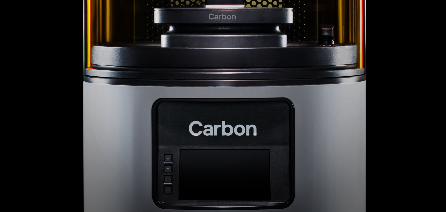
Our latest analysis shows that Carbon’s recent pricing announcement for their M1 “CLIP”-based 3D printer might not be as stratospheric as you might think.
First a recap: Carbon recently announced their first product, the M1 resin-based desktop 3D printer. While there’s a bunch of hubbub about the machine’s speed, that’s really not a unique characteristic and the story is actually about the materials. Carbon intends on producing a variety of powerful resins that will be used in their machine, but for now have announced only an initial set.
This blog analyzed the total cost of ownership if committing to a Carbon M1 and found the pricing to be spectacularly higher than what one might expect for a typical desktop resin-based 3D printer.
But here’s the thing: pricing is ALWAYS a relative factor.
In this case, many people compared the pricing of the Carbon M1 operations to other similarly sized desktop resin 3D printers, which typically cost from USD$2,000 to USD$5,000. When seeing the total commitment to running a single Carbon M1 at USD$290,000+, I’m sure a few readers may have lost consciousness.
Those distressed readers were looking at things from a cheap desktop 3D printer point of view. But what about a different perspective?
Suppose you’re currently using an industrial 3D printer, such as a 3D Systems ProJet, which just happens to also use resin.
Machines such as the ProJet series from 3D Systems come in a wide variety of shapes and sizes, but the machines themselves are priced far higher than common inexpensive desktop units, perhaps even similar or higher than the total subscription price of the Carbon M1.
But what about the resin? You remember, that stuff you must put into the printer constantly to make it do useful things?
Carbon’s pricing for resin varies somewhat depending on the particular resin. Their average price for a 800ml bottle is USD$166, or, USD$211 per liter as an equivalent.
How does that compare with 3D Systems’ resin prices? Well, pricing is difficult to obtain from 3D Systems, as such materials are sold through their extensive network of resellers at a variety of price levels. However, the few examples we found for typical Visijet cartridges is around USD$600 to USD$650 per 2 kg bottles, with USD$400 for 2 kg of support material.
Hold on then, let’s say this clearly: Carbon’s average price per kg is USD$169, while 3D Systems’ is over USD$300. That’s almost twice as much!
The comparison is even more dramatic when you compare the price of Carbon’s basic plastic resin, which is priced at only USD$99 per 800ml (USD$124/kg).
Pricing is all a matter of perspective. To the 3D Systems customer, assuming the print quality is similar, the M1 might be a less expensive option. For those of you that thought the Carbon M1 was expensive, do you still think so?

